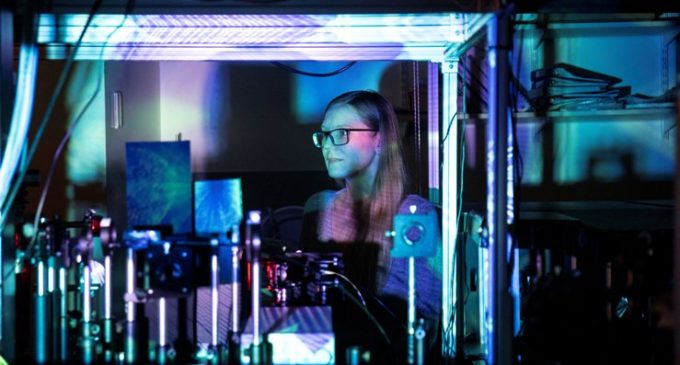Ireland’s first dedicated Quantum Computer Engineering Centre launched

The Government has launched Ireland’s first dedicated Quantum Computer Engineering Centre (QCEC) at Tyndall National Institute, the national institute for ICT research based at University College Cork. The multi-million-euro investment will see 900 sq meters of research space dedicated to quantum technology at Tyndall’s new facility on Cork’s North Mall and will be a key part of the Institute’s plans to double in size and impact by 2025. Tyndall is also recruiting 5 new senior research leaders, including a Head of Quantum Research to lead the overall Centre and who will build new quantum research teams to accelerate the growth of the centre. Overall, this new investment will result in an additional 45 quantum research jobs giving a further boost to Tyndall’s quantum ecosystem that already counts the highest concentration of researchers in Ireland.
Commenting on the launch of Tyndall’s Quantum Computer Engineering Centre, Simon Harris TD, the Minister for Further and Higher Education, Research, Innovation and Science said, “Tyndall is one of Europe’s leading institutes in ‘deep-tech’, and we have seen how the application of advanced technology has had a profound effect on the lives of citizens, as well as industry, through smart medical devices, high-speed telecommunications, robotics and automation, and the microelectronic chips that enable all of ICT. Tyndall is also a leader in industry-academia collaboration. I am therefore delighted to announce that they have established Ireland’s first dedicated Quantum Computer Engineering Centre (QCEC), which will ultimately lead to the creation and retention of high-quality sustainable ICT jobs. Tyndall QCEC will not only focus on the realisation of quantum technology in Ireland, but it will also upskill Irish researchers in the area of Quantum and will support open innovation and collaboration between academia and industry. This will transform our high-tech economy and secure Ireland’s future as a worldwide technology leader, whilst supporting key Irish technology companies and SMEs.”
Professor William Scanlon CEO of Tyndall National Institute, said, “Tyndall never stops looking ahead. Our pioneering embrace of next generation technology has already profoundly impacted the semiconductor industry, high-speed optical communications networks, medical devices and many other areas based on nanotechnology, microelectronics and photonics research.
“The next great leap in technology is Quantum Computing, which will have a huge impact on the future of the ICT industry and across many application areas. We are not on the cusp, but already in the process of the Quantum Revolution. Functioning Quantum Computers exist today, and around the world, academia, governments and industry are investing significantly in trying to develop more robust and scalable methods of realising the technology, so that it eventually surpasses today’s classical computers and will be accessible and impactful for the many and not just the few.
“Tyndall, and Ireland, has an opportunity to play a pivotal part in moving quantum science from theory to practice, particularly in developing innovative ways to make the technology more powerful, and scalable through integration of quantum devices, hardware and software. Many organisations worldwide are working on quantum computing behind closed doors, but we are a country that has an open innovation ecosystem at its heart. In addition, most of the major tech companies and ICT innovators are based here, and we are experienced at bringing new technologies to market. We therefore have the people, the technology enablers and the industry partners to spearhead Ireland’s place in delivering the impact of the Quantum Revolution”.
Tyndall has been at the forefront of quantum technology research in Ireland for 10 years and is already pioneering Irish efforts in engineering next generation quantum technology using deep-tech photonics and nano-electronics, working on a number of ambitious projects with industry partners. Tyndall is also a partner in several European projects on quantum engineering, including the realisation of single-photon sources at telecommunication wavelengths, the development of cryogenic electronics for scalable quantum computing technologies, and the offering of research infrastructure to enable research on materials and nanostructures for quantum computing and sensing.
“Today we are developing the theories and computational models of tomorrow, producing the materials, engineering the devices, and building applications to enable our quantum future,” said Professor Scanlon.
Quantum requires new types of hardware, software and communication technologies, using an entirely different logic to conventional computers utilising Boolean algebra, the building blocks of computer technology developed by the first professor of mathematics at UCC. Tyndall’s core research work to date has been in Quantum Cryptography for secure communications and sources of quantum light for quantum information (quantum internet and quantum computation).


























